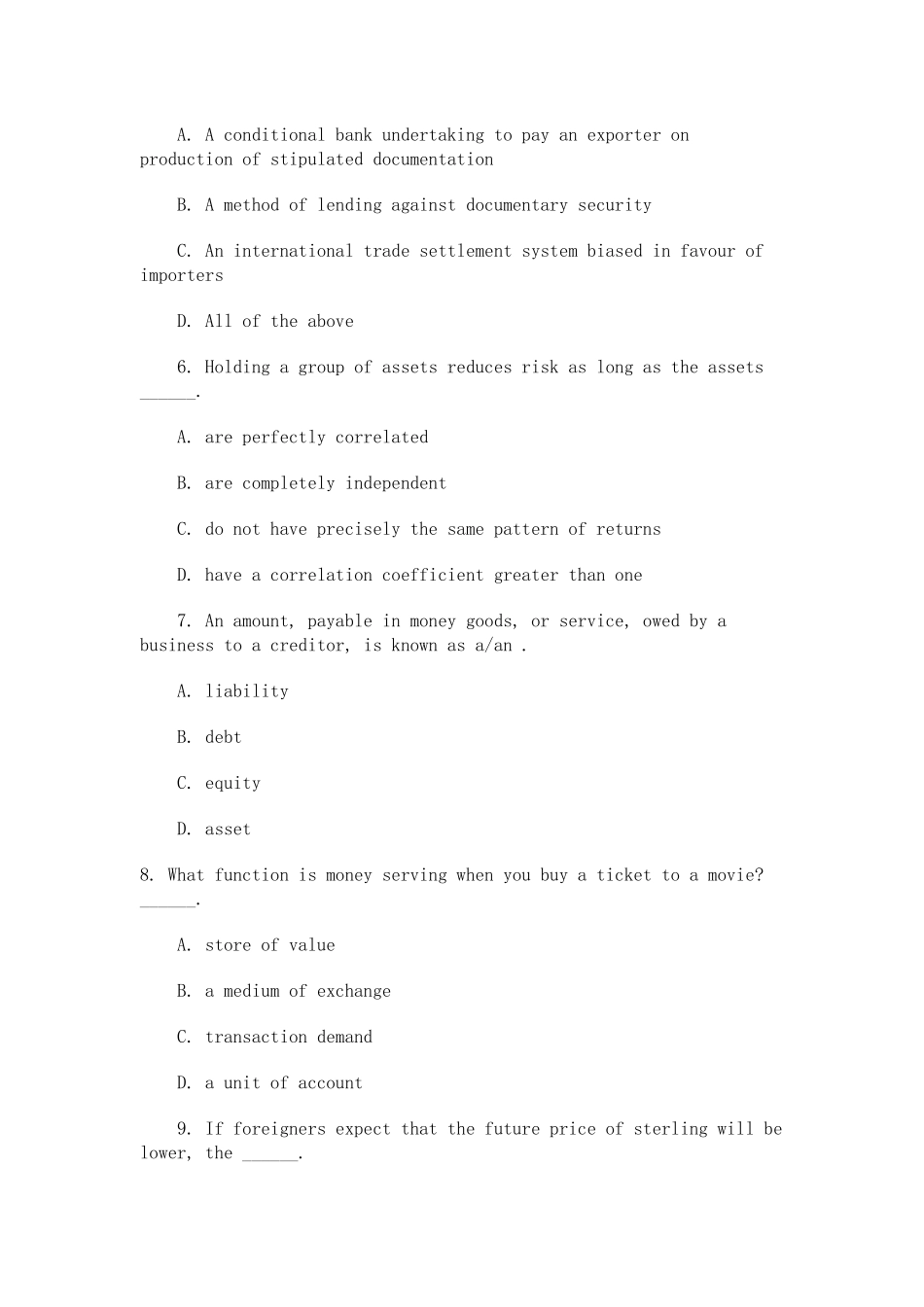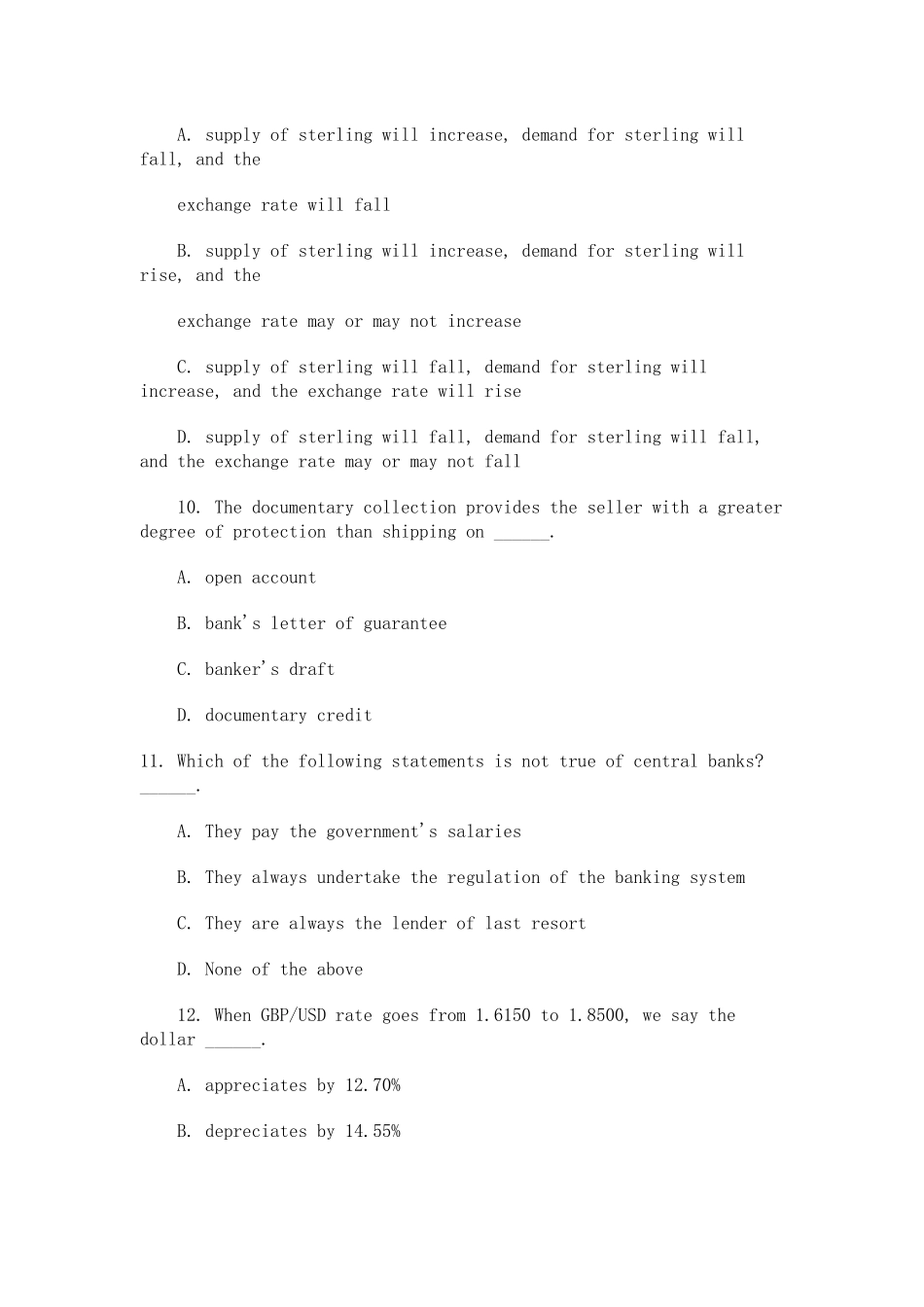1. Which of the following is not a function of money? ______. A. To act as a medium of exchange B. To act as a unit of account C. To act as a store of value D. To provide a double coincidence of wants E. To act as a means of payment 2. The price in the foreign exchange market is called ______. A. the trade surplus B. the exchange rate C. the money price D. the currency rate 3. Market risk refers to the risk of______. A. financial prices fluctuations B. default D. deferred payments 4. Which of the following is not among the generally accepted accounting principles? ______. A. Cash basis B. Prudence C. Consistency D. Going concern E. Money measurement. 5. What is a documentary letter of credit? ______. A. A conditional bank undertaking to pay an exporter on production of stipulated documentation B. A method of lending against documentary security C. An international trade settlement system biased in favour of importers D. All of the above 6. Holding a group of assets reduces risk as long as the assets ______. A. are perfectly correlated B. are completely independent C. do not have precisely the same pattern of returns D. have a correlation coefficient greater than one 7. An amount, payable in money goods, or service, owed by a business to a creditor, is known as a/an . A. liability B. debt C. equity D. asset 8. What function is money serving when you buy a ticket to a movie? ______. A. store of value B. a medium of exchange C. transaction demand D. a unit of account 9. If foreigners expect that the future price of sterling will be lower, the ______. A. supply of sterling will increase, demand for sterling will fall, and the exchange rate will fall B. supply of ster...


